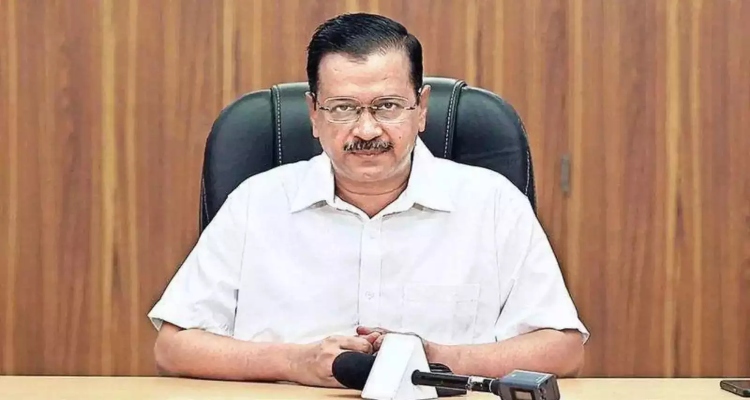
Jailed Chief Minister Arvind Kejriwal has approached the Supreme Court against the Delhi High Court’s interim stay on a trial court’s order granting him bail in a money laundering case linked to the alleged excise scam. One of Kejriwal’s lawyers stated that they would be seeking urgent listing of the petition on Monday.
The high court on Friday paused the Delhi CM’s release after the trial court had granted him bail on June 20. The Aam Aadmi Party (AAP) national convener, who was arrested by the Enforcement Directorate (ED) on March 21, could have walked out of Tihar jail on Friday had the high court not granted the interim stay relief to the federal anti-money laundering agency.
“Until the pronouncement of this order, the operation of the impugned order shall remain stayed,” a vacation bench of Justice Sudhir Kumar Jain stated, asking the parties to file written submissions by June 24.
The high court had scheduled the plea for a hearing on July 10. The court stated it would reserve the order for two to three days to thoroughly review the entire case records. Additionally, a notice was issued to Kejriwal, seeking his response to the ED’s plea challenging the trial court’s June 20 order that granted him bail.
Additional Solicitor General (ASG) S V Raju, representing the ED in the high court, argued that the trial court’s order was “perverse,” “one-sided,” and “wrong-sided.” He asserted that the findings were based on irrelevant facts and that the special judge had not considered the relevant facts.
Requesting a stay on the trial court’s order, Raju contended that the ED was not given adequate opportunity to argue its case.
The ED’s application for a stay was vehemently opposed by senior advocates Abhishek Singhvi and Vikram Chaudhari, representing Kejriwal. They argued that Article 21 (protection of life and personal liberty) of the Constitution does not seem to apply to the ED, for whom the liberty of a person appears to be a low priority.
Raju further contended that Section 45 of the Prevention of Money Laundering Act (PMLA) mandates an opportunity for the public prosecutor to present their case, but that opportunity was not granted to him.
He stated that the trial court did not even review his reply due to its bulkiness and claimed that the court concluded there was malafide intent on the ED’s part based on incorrect facts and dates.
Singhvi submitted that the ED argued for three hours and 45 minutes before the trial judge.
In its bail order, the trial court held that prima facie, Kejriwal’s guilt was yet to be established and that the ED had failed to provide direct evidence linking him to the proceeds of crime in the money laundering case.
The excise policy was scrapped in 2022 after the Delhi lieutenant governor ordered a CBI probe into alleged irregularities and corruption in its formulation and execution.
According to the ED and the Central Bureau of Investigation (CBI), irregularities were committed while modifying the policy, and undue favours were extended to the license holders.




